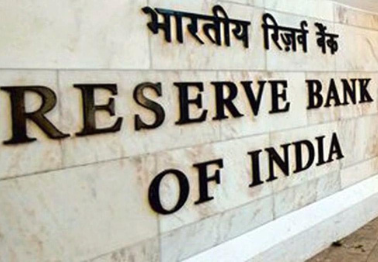What is RBI and Its Functions?
India’s central banking and monetary authority is known as the Reserve Bank of India (RBI). The reserve bank of India governs the availability of funds in the financial system for credit as well as the loans made by banks and non-banking financial institutions to consumers, corporations, and governments.
Website: https://www.rbi.org.in/
Through the auction of government assets, the RBI sets the direction for interest rates, maintains price stability, and undertakes fund-raising activities for the federal and state governments. The Reserve Bank is also in charge of maintaining currency exchange rates, keeping an eye on money flows into the Indian economy, and overseeing the operations of banks and other financial organizations.
Initially owned privately, the Indian government currently owns all of RBI. The Reserve Bank of India Act was established on April 1, 1935, and the RBI’s head office was first located in Kolkata before being relocated to Mumbai in 1937.
The Reserve Bank of India: An Overview (RBI)
The RBI’s primary objective is to carry out comprehensive supervision of the Indian financial sector, which consists of commercial banks, financial institutions, and non-banking financing companies. Restructuring bank inspections, implementing off-site surveillance of banks and financial institutions, and enhancing the role of auditors are some of the initiatives the RBI has adopted.
The RBI is primarily responsible for developing, implementing, and overseeing India’s monetary policy. The managerial goal of the bank is to keep prices stable and make sure that credit is flowing to economically productive areas. In accordance with the Foreign Exchange Management Act of 1999, the RBI also controls all foreign exchange. This law enables the RBI to ease international trade and payments in order to support the growth and well-being of the Indian foreign currency market.
The RBI supervises and regulates the entire financial system. This boosts public confidence in the nation’s financial system, safeguards interest rates, and gives people good banking options. And finally, the RBI is responsible for issuing national currency. According on whether the currency is suitable for current circulation, it is either issued or destroyed in India. This addresses a persistent problem in India by supplying the general populace with currency in the form of trustworthy notes and coins.
Function on RBI:
1. Notes-issuing entity: The RBI is the single organisation in charge of managing currency note printing (except the one rupee note, which is printed by the finance ministry).
2. Government banker: The RBI handles banking tasks for the federal and state governments. In addition to managing the government’s public debt, it provides the government with monetary policy advice.
3. Banker’s bank: The central bank is also referred to as a banker’s bank since it serves customers in a manner akin to that of commercial banks.
4. Credit control: The RBI manages the movement of money across the nation’s financial system. It manages economic inflation and occasionally makes the critical policy choices required to solve systemic issues.
5. Foreign reserves: To maintain stable foreign exchange rates, the central bank buys and sells foreign currencies. When necessary, it takes the appropriate action.
6. Contribution to national development: The RBI conducts numerous tasks and makes critical choices to assist the government’s goal for national development.
RBI boards:
A Governor, no more than four Deputy Governors, and other members chosen by the federal government make up the RBI’s board of directors. Shaktikanta Das is the Reserve Bank of India’s governor at the moment. There are three Deputy Governors: M D Patra, B P Kanungo, and Mahesh Kumar Jain.
For any query/ personal assistance feel free to reach out at support@Altiusinvestech.com or call us at +91-8240614850.
To know, more about Unlisted Company. Click here – https://altiusinvestech.com/blog/what-is-listed-and-unlisted-company
You can also checkout the list of Best 5 Unlisted Shares to Buy in India
For Direct Trading, Visit – https://altiusinvestech.com/companymain.
To know more about How to apply for an IPO? Click- https://altiusinvestech.com/blog/how-to-apply-for-an-ipo/

